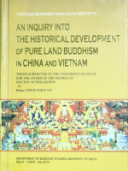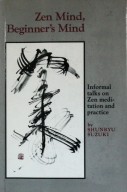Tìm Sách
Sách tiếng Anh-English >> Dhamma Ratana (Volume I)
Thông tin tra cứu
- Tên sách : Dhamma Ratana (Volume I)
- Tác giả : Ashin Kundalabhivamsa, Maha Kammatthanacariya, Mahasi Nayaka
- Dịch giả : Dr. Kay Mya Yee
- Ngôn ngữ : Anh
- Số trang : 209
- Nhà xuất bản : U Nada Thirinandar Press Yangon Myanma
- Năm xuất bản : 1998
- Phân loại : Sách tiếng Anh-English
- MCB : 1210000001597
- OPAC :
- Tóm tắt :
Preface
In this book, the readers will find the lucid explanation about dana, sila, samatha and vipassana meditation. The methods of contemplation to overcome pain and sufferings (Dukkha Vedana) which especially the beginners in vipassana meditation have much difficulties to master, are also presented with clarity. Furthermore, the way of Kamma, the way of Jhana and the way of Wisdom are explained in such a way for the readers to understand easily.
The meditators should have some knowledge about the stages in the progress of insight while they are practising the vipassana meditation. Therefore, the successive development of vipassana wisdom, according to the stages of insight is expounded in a simple manner so that the readers comprehend them clearly. To encourage the meditators, this book also dealt with the ways to undertake meritorious deeds so as to be saved from apaya, though they are not yet sotapans in this very life.
Moreover, for those striving to be a sotapan in this very life, the conditions to become sotapan, the four constituents for a sotapan are explicitly expounded. In addition to the above mentioned dhamma, how to control the overexcited mind, how to encourage the mind when it is oppressed, how to let it be joyful when necessary and how to establish equanimity when it is to be indifferent, are the essential factors for the meditators to comprehend lucidly. As the vipassana meditation is the work of conscious mind, it is of utmost importance to learn how to subdue and culture the mind in order to achieve the noble dhamma, magga and phala.
CONTENTS
Preface
A Note
Acknowledgement
- The Three Essence
- Wealth and Dana
- Physical Body and Sila
- Life and Vipassana
- Insight Meditation
- Seven Constant Propagating Kusala
(Nibaddha Kusala)
- Refuge in the Three Gems
- Observation of Five Precepts
- Drawing Lots
- Fortnightly Alms-food Offering
- Waso-robe Offering
- Donating Cisterns for Drinking Water
- Building Monasteries
- The Four Conditions which are Difficult to Attain
- Difficult to be a human being
- Difficult to be alive
- Difficult to listen to the noble dhamma
- Difficult to be in the presence of the Buddha’s Sasana
- Four Foundations of Mindfulness
- The Unobstructive Four Conditions
- Decay
- Sickness
- Death
- Ill-effect of Misdeeds
- The Four Constituents for Sotapan and Twenty-tour Types of Sotapan
- To take refuge in noble persons
- To listen to the noble dhamma
- To develop proper attitude
- To practise what is adaptive to magga and phala
- Three ways of vipassana meditation
- The twenty-four types of sotapan
- Number of existence to undergo
- Predominating factors
- Ways of Practice
- The Four Constituents for Sotapan and the Six Benefits of Sotapan
- To take refuge in noble teachers
- To listen to the noble dhamma
- To develop proper attitude
- To practise what is adaptive to magga and phala
- Six benefits
- The Five Supporting Factors
(Anuggahita Sutta)
- Sila
- 4 types of sila
- Knowledge
- Dhamma discussion
- Samatha meditation
- Four ways of protection
- Vipassana Meditation
- The Five Conductive Conditions
(Five Sappaya Dhamma)
- Accommodation
- Climate
- Food
- Sixty monks and Matikamata
- Company
-
Audition of Dhamma
- The Five Benefits
- Story of Kala
- The Four Supreme Exertions
(Four Padhana Dhamma)
- To prevent the demerits
- To discard the demerits
- To develop the merits
- To propagate the merits
- Happiness and Pleasant Feeling
(Sukha Somanassa Sutta)
- Delight in dhamma
- Delight in meditation
- Delight in discarding immoral dhamma
- Delight in solitude
- Delight in emancipation of sufferings
- Delight in freedom from the dhamma propagating the cycle of existence
- Three Factors for the Attainment of Nirvana
(Uddesa Vibhanga Sutta)
-
On seeing
- Monk Cittagutta
- On hearing
- On smelling
- On eating
- On touching
-
On thinking
- The Five monks
- Prisoner and a cup of oil
-
Internal arrest
- Five vipassana piti
- On Attachment
- The Three Vedana
-
Dukkha Vedana
- Three ways of contemplation
- Sukha Vedana
- Upekkha Vedana
- Four types of yogi
- The Factors of Enlightenment
(Bojjhanga Sutta)
- Sati sambojjhan
- Dhamma vicaya sambojjhan
- Piti sambojjhan
- Five kinds of Piti
- Samadhi sambojjhan
- Upekkha sambojjhan
- Types of Cetiya
- Tazaungmonc month and light festival
- Culamani Cetiya
- Dussa Cetiya
- Three types of Cetiya
- Five types of Cetiya
- Three Events
- Cetiya and Vipassana
- Progress of Insight with Emphasis on Sankharupekkha Nana
- Way of Kammu
- Way of Jhana
- Way of Wisdom
-
Sankharupekkha Nana
- Differences or Significance
- The Sublime Happiness
(Sitibhava Sutta)
- To control the over-excited mind
- To encourage the mind when it is oppressed
- To let the mind be joyful when it is necessary
- To be indifferent when necessary
- To develop inclination towards the noble magga and phala
- To delight in the sublime happiness of Nirvana
 Facebook
Facebook
 Google
Google
 Google+
Google+


















